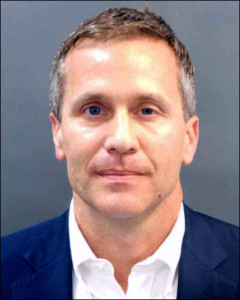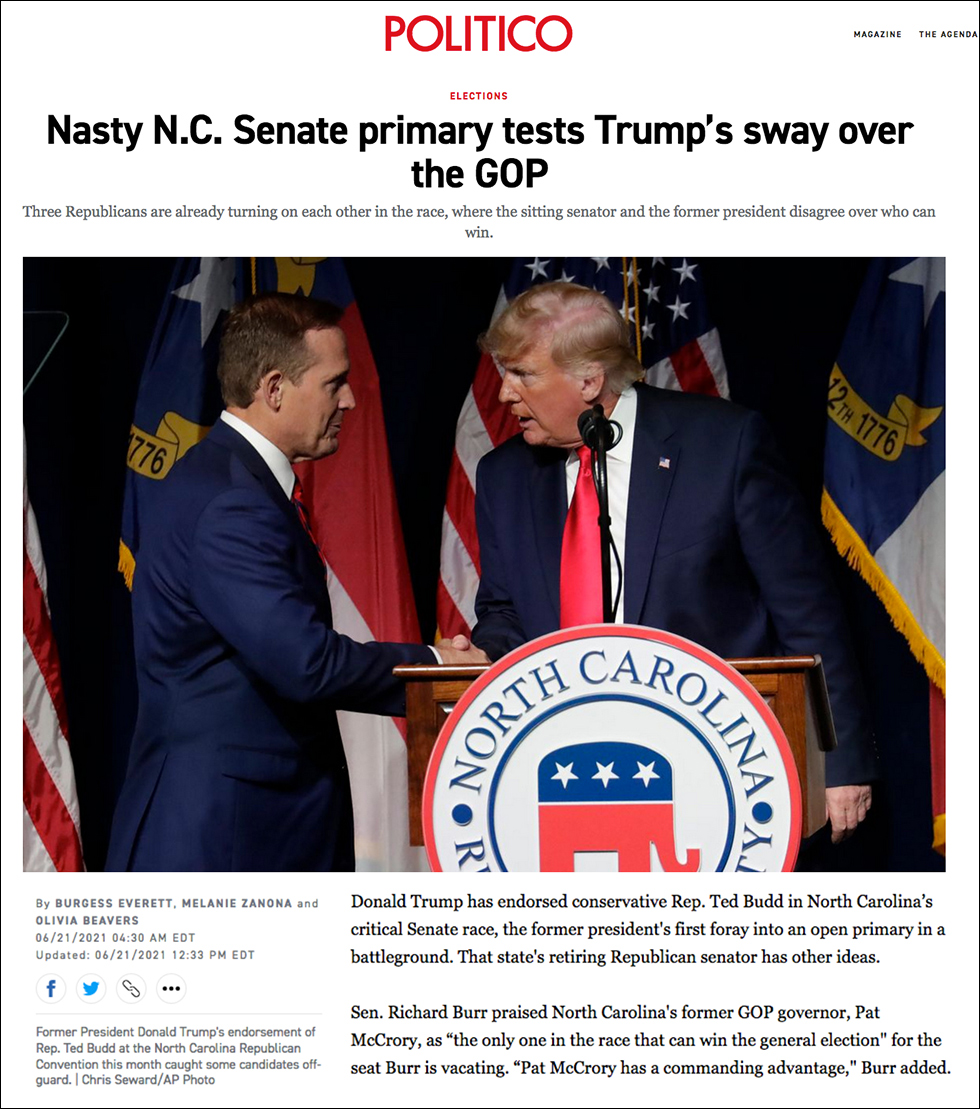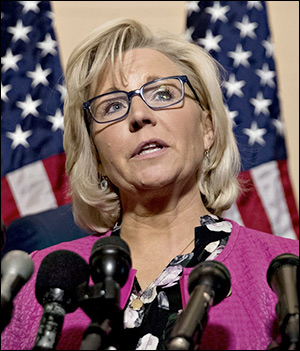By Jim Ellis — June 30, 2022
Senate
Missouri: Republicans Trying to Bring Down Greitens — The Politico publication is reporting that a group of Republicans are funding a major new “Show Me Values” super PAC in order to run negative ads against resigned Gov. Eric Greitens (R) before the Aug. 2 US Senate primary. The former governor was forced out of office less than two years after he was elected based upon a sex scandal and legal charges that were later dismissed because of prosecutorial misconduct.Attempting a return in the 2022 Senate race, Greitens ex-wife is accusing him of domestic abuse in their child custody hearings. Despite all of the negativity surrounding Greitens, the other Republican candidates have been unable to break through, and the former governor continues to maintain small leads in most polls. Fearing that Greitens will lose the general election, the Show Me Values organization is attempting to help another candidate, whether it be Attorney General Eric Schmitt or Reps. Vicky Hartzler (R-Harrisonville) and Billy Long (R-Springfield), to victory in the upcoming GOP primary.
Oklahoma Special: Runoff Likely — According to a new Sooner Poll, a combined effort from the news departments from Oklahoma City and Tulsa Channels 9 and 6, respectively (June 13-21; 350 likely Oklahoma Republican primary voters), finds US Rep. Markwayne Mullin (R-Westville) and former state House Speaker T. W. Shannon headed for a Republican runoff after Tuesday’s primary voting. The poll results are consistent with others that have been periodically released since March.
In this Sooner Poll survey, Rep. Mullin commands 39 percent support and Shannon 13 percent. State Sen. Nathan Dahm (R-Broken Arrow) is well back with eight percent, and former Sen. Jim Inhofe chief of staff Luke Holland trails with a five percent preference factor. If no candidate receives majority support, the top two finishers will advance to an Aug. 23 runoff election. The eventual Republican nominee is a lock in the general election and will serve the remaining four years on resigning Sen. Inhofe’s current term.
House
MI-7: Rep. Slotkin in Toss-Up Race — State Sen. Tom Barrett (R-Lansing) released an internal Cygnal campaign poll (June 14-16; 400 MI-7 registered voters; peer-to-peer text) that gives the candidate a 46-44 percent ballot test lead over two-term US Rep. Elissa Slotkin (D-Holly). Michigan’s primaries are scheduled for Aug. 2. In what appears to be worse news for the Democratic incumbent, the generic question yields 50.3 percent of the respondents saying they will vote for a Republican congressional candidate versus just 39.3 percent who plan to support a Democratic contender in the US House campaign. The Biden job approval index is an upside-down 36:62 percent positive to negative. The FiveThirtyEight organization rates the new 7th CD as R+4. Dave’s Redistricting App calculates the partisan factor at 49.3 D – 47.9 R.
In 2020, Rep. Slotkin was re-elected to the 8th CD with a 51-47 percent margin. The new 7th District contains just over 38 percent new constituents for the congresswoman. The Michigan Independent Citizens Redistricting Commission drew several toss-up congressional districts, similar to the statistics we see from the new 7th CD.
Governor
Michigan: Tight GOP Contest Forecast — Michigan pollster Mitchell Research, conducting a political poll for the Michigan Information & Research Service (June 21-22; 588 likely Michigan Republican primary voters; interactive voice response system & text) finds the Republican primary falling into a dead heat still several weeks away from the Aug. 2 primary election. The field drastically changed when leading candidate James Craig, the former Detroit Police Chief, businessman Perry Johnson, and several others failed to qualify for the ballot because they lacked the required number of legal petition signatures.
Such being the case, the new Mitchell poll finds talk show host Tudor Dixon and businessman Kevin Rinke tied with 15 percent support. Closely following is real estate broker and Trump activist Ryan Kelley at 13 percent, while chiropractor Garrett Soldano posts eight percent preference. Michigan uses a plurality system to determine their party nominees, meaning the person with the most votes wins the single nomination election regardless of percentage attained. The eventual nominee will then challenge Gov. Gretchen Whitmer (D) in the general election.






